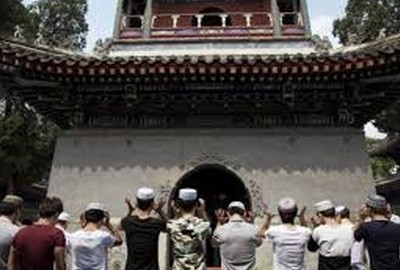China, Myanmar, Vietnam fare poorly in US religion report
State Department takes swipe at jailing, harrassment of believers in annual assessment.
International: Freedom of worship was once again harshly restricted in China and Myanmar last year, the U.S. State Department said in its annual International Religious Freedom Report.
Religious believers were jailed in China and religious minorities harassed by government and citizens’ groups in Buddhist-majority Myanmar, said the report released on Aug. 15.
In Vietnam, authorities continued to harass religious groups, although the severity “varied from region to region and among the central, provincial, and local levels,” according to the report.
In China, state officials “physically abused, detained, arrested, tortured, sentenced to prison, or harassed adherents of both registered and unregistered religious groups,” the report went on to say.
Authorities in Zhejiang province continued its campaign that started in 2014 to tear down Christian structures, including 600 crosses destroyed by the end of last year.
“Throughout the country, there continued to be reports of deaths, in detention and otherwise,” of religious believers, the report said.
Banned spiritual group Falun Gong said that dozens of its members had been killed, Radio Free Asia (RFA) reported.
Buddhists and Uyghur Muslims face repression and were subjected to discrimination regarding “employment, housing, and business opportunities,” the State Department said.
In China’s Sichuan province, authorities demolished thousands of monastic dwellings in the Larung Gar Buddhist Academy and expelled their occupants, while in northwestern China’s Xinjiang region, Uyghur children were barred from religious study, and restrictions were imposed on Muslim dress and practice deemed “extremist.”
“In December, a Xinjiang court sentenced a Christian woman, Ma Huichao, to three years in prison for ‘gathering a crowd to disturb public order’ after holding a Bible study in her home in [the regional capital] Urumqi,” the State Department report said.
“A fellow congregant said that the Bible study was not a formal gathering — there were no pastors present and there were only a few people reading the Bible in Ma’s home.”
In Myanmar, authorities and hard-line Buddhist groups infringed on the religious rights of Muslims and Christians, delaying permits to build houses of worship and in some cases halting the construction of mosques after protests by Buddhist neighbors of Muslims.
“There were reports of killings, sexual abuse, arbitrary arrest, burning of structures, [and] continued detention of Rohingya Muslims,” the State Department said.
“[However], because religion and ethnicity are often closely linked, it was difficult to categorize many incidents as being based solely on religious identity.”
Meanwhile, religious and community groups in Myanmar worked throughout the year to counter hate speech and foster dialogue by hosting interfaith events and calling for legislation aimed at promoting religious harmony, according to the report.
In Vietnam, authorities continued last year to restrict the activities of religious groups, assaulting and detaining church members, restricting their travel, and confiscating church land for development projects.
Groups not registered with the government were severely treated, the State Department said.
In January 2016, the head pastor of the unregistered Montagnard Degar Evangelical Church in Gia Lai province died from internal injuries after a police beating the month before, while a Mennonite pastor serving an 11-year prison term for “undermining state unity” was beaten by guards the in February.
The pastor’s wife said that he and other prisoners had previously found “bits of glass and copper wire in their prison food,” according to the report.
Raids were also made on Catholic churches, unregistered Buddhist temples, and Bible study groups, with church leaders and parishioners sometimes beaten by assailants dressed in plain clothes but apparently supervised by police.
“Government treatment of religious groups varied from region to region and among the central, provincial, and local levels,” though, the report said.
Copyright © 1998-2016, RFA
Source: UCAN









